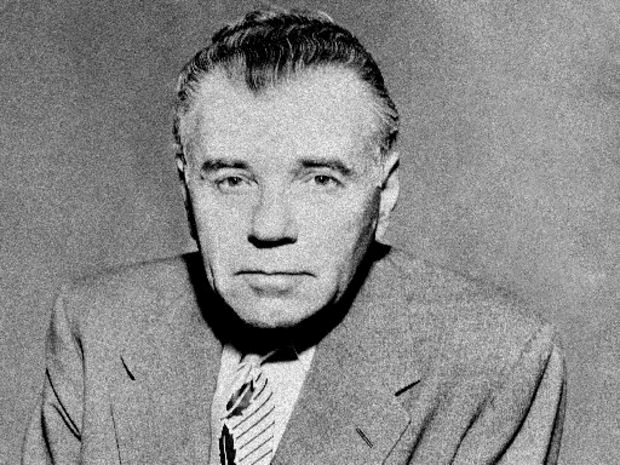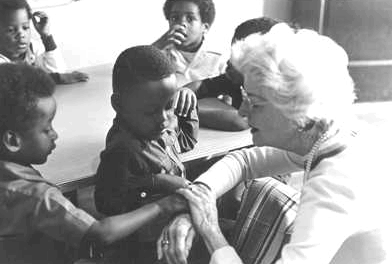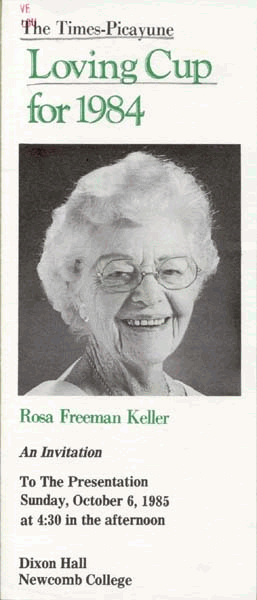|
Today in New Orleans History |
|
|
November 22


19980 Barrysimon, a Main-belt asteroid discovered on November 22, 1989 by
David H. Levy and Carolyn S. Shoemaker at Palomar, was named for amateur astronomer
Barry Simon who is the founder of the Deep South Regional StarGaze, an amateur event held annually since 1983.
Barry Simon is also a multi-term past president of the Pontchartrain Astronomy Society of New Orleans.
Born in New Orleans on November 22, 1901, Paul D. "Polo" Barnes was
a jazz clarinetist and saxophonist. A brother of Emile Barnes. "Polo" and was a mainstay
of the New Orleans jazz scene of the 1920s and 1930s. He and Lawrence Marrero formed the Original
Diamond Band, later known as the Young Tuxedo Band. He performed with Kid Rena in 1922, the
Maple Leaf Orchestra and Papa Celestin's Original Tuxedo Band in 1923, Chick
Webb in 1927, and with King Oliver in 1927, 1931, 1934–35. Barnes toured with Jelly
Roll Morton in 1928-29. In 1932-33 he led his own band and played with Chester Zardis (1935), and Kid
Howard (1937–39, 1941). He played in Algiers in a Navy band from 1942–45, then
returned to work with Celestin from 1946 to 1951. In 1959 and 1960 he played with Paul Barbarin. From 1962-65
jhe was a member of the Young Men from New Orleans band that played on a riverboat at Disneyland.
He returned to New Orleans in 1964 and played at Preservation Hall and Dixieland Hall. He
toured Europe in 1973-74, but poor health ended his career in 1977. Barnes died. April 3, 1981. Oscar James Dunn was one of three African Americans who
served as a Republican Lieutenant Governor of Louisiana during the era of Reconstruction. In 1868, Dunn became the first elected black
lieutenant governor of a U.S. state. He died at his home on Canal Street on November 22, 1871.
Already a member of the New Orleans
chapter of the League of Women Voters, Keller began her foray into the world of politics working on voter registration. When
her mother died in 1945, Keller was asked to serve on the local YWCA board, an integrated organization that deeply impacted
her views on race relations. In 1947, seeking to alleviate the housing shortage for New Orleans’s black families, Rosa
and Charles Keller, along with friends and philanthropists Edith and Edgar Stern, financed the construction of Pontchartrain
Park, one of the first middle-class black communities in the country.
Keller expanded her political involvement in the early 1950s when she helped organize the Independent Women’s
Organization, created to support the election of moderate mayoral candidate deLesseps Morrison. When Morrison asked Keller
to serve on the board of the public library system, she readily accepted, becoming the first woman to serve on a citywide
board. Almost immediately Keller brought controversy to her position when she set out to integrate the New Orleans public
library system—a goal she eventually achieved. Keller continued to serve the New Orleans black community in a
variety of ways. She chaired the board of Flint-Goodridge Hospital, a facility that catered to the black community. In this
capacity, she fought for and won access to Blue Cross coverage for the New Orleans black community, and insisted that African
American medical students have access to New Orleans’s medical libraries. Keller also served as president of the New
Orleans Urban League, and on the boards of numerous citywide interracial organizations. In 1953, Keller decided that
it was time the League of Women Voters, an organization she loved, begin the process of admitting black members. With the
help of her progressive peers, she succeeded in integrating the organization in 1955. State laws passed in the wake of the
U.S. Supreme Court’s decision in Brown v. Board of Education, however, forced to the league to resegregate a year later.
Through Keller’s persistence, the league permanently achieved integrated status in 1963. In 1958 Keller led
the fight to desegregate the New Orleans public transportation system, but she considered her efforts to integrate the city’s
public schools as “her war.” Toward this end, Keller helped create Save Our Schools (SOS), an organization dominated
by elite white women in the New Orleans community. During the 1960 New Orleans School Crisis, when the first
black children attended formerly all-white schools, SOS ferried children to and from the integrated schools. They also raised
monies for the black and white families who kept their children in the schools and lobbied the state legislature on behalf
of integrated schools. Much to the chagrin of some family members, Keller also personally financed the legal fight to desegregate
Tulane University in 1963. Through the years, Rosa Keller had no qualms about holding interracial gatherings in her Uptown
home, though it was considered a serious breach of racial etiquette at the time. Keller received numerous honors for
her work on racial issues in New Orleans, including the Times-Picayune Loving Cup Award, which honors New Orleans residents
who have worked unselfishly for the community without expectation of public acclaim or material reward. She also received
an honorary alumnus degree from Newcomb College and an honorary doctorate from Dillard University.
She died in April 15, 1998, in New Orleans. The Keller Family Foundation, established in 1949, continues
to provide monies to sustain and improve the New Orleans community. The Rosa F. Keller Library
& Community Center at 4300 S. Broad was named for her on October 6, 1999 Source:
Frystak, Shannon. "Rosa Keller." KnowLA Encyclopedia of Louisiana. Ed. David Johnson. Louisiana Endowment
for the Humanities, 31 Jan. 2011. Web. 20 Nov. 2013. |
|
|

To receive an update for each day in New Orleans history,
join our facebook page - Today in New
Orleans History.
Analytics |



 Story by Shannon Frystak
Story by Shannon Frystak Rosa Freeman was born March 31, 1911, to Alfred Bird “A.B.” Freeman and Ella West. While her
mother descended from a family of southern aristocrats, Rosa’s father was a salesman—a “nobody from nowhere”—until
he made a fortune with his fledgling Coca Cola business. With his success, the family gained entrance into the world of the
New Orleans elite. After high school, Rosa Freeman attended
Rosa Freeman was born March 31, 1911, to Alfred Bird “A.B.” Freeman and Ella West. While her
mother descended from a family of southern aristocrats, Rosa’s father was a salesman—a “nobody from nowhere”—until
he made a fortune with his fledgling Coca Cola business. With his success, the family gained entrance into the world of the
New Orleans elite. After high school, Rosa Freeman attended 
